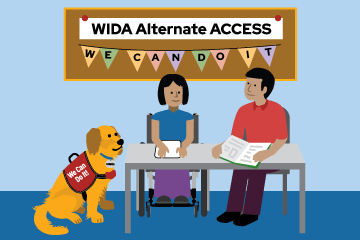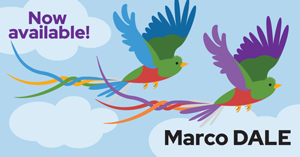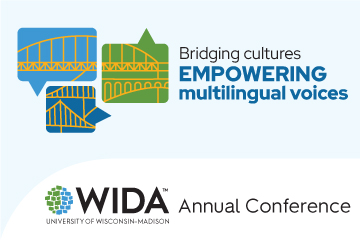Resources/Recursos
Featured Resources
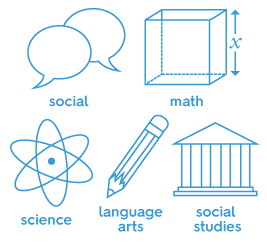
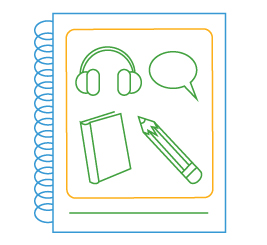
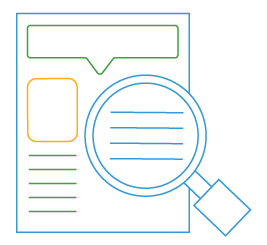
All resources/Todos los recursos
2012 Amplification of the WIDA English Language Development Standards
The 2012 Amplification of the WIDA English Language Development Standards, Kindergarten-Grade 12, represented the social, instructional, and academic language students might need to engage with peers, educators, and the curriculum in schools. The 2012 Amplification included examples of how language could be processed or produced within a particular context through Model Performance Indicators (MPIs). MPIs were meant to be examples and not fixed guidelines of the language with which students may have engaged during instruction and assessment.
WIDA intends to fully retire the 2012 Amplification of the WIDA English Language Development Standards, Kindergarten-Grade 12. However, we recognize that all member SEAs have different timelines for implementation of the WIDA ELD Standards Framework, 2020 Edition. With that in mind, the 2012 Amplification will remain in the Resource Library so that educators whose SEAs are still using it may access it as needed.
Resource Details View Download NowCollaboration: Working Together to Serve Multilingual Learners
This WIDA Focus Bulletin emphasizes the many benefits of collaboration. The collaborative approach is presented as a cyclical process with shared responsibility by educators assessing, reflecting upon, planning for and teaching multilingual learners.
Resource Details View Download NowCurricular Considerations: Introduction to Collaborating Around the 2020 Edition
The WIDA ELD Standards Framework, 2020 Edition brings new practical ways for all educators working with multilingual learners to conceptualize the development of content and language together through asset-based, equitable, and rigorous approaches in curricular design. This session will encourage participants to think about what collaboration looks like in these contexts.
Resource DetailsEducación en el mundo actual
This Focus Bulletin offers strategies for advancing equity in bilingual settings during the mundo actual of COVID-19. The bulletin emphasizes the importance of valuing multilingual learners’ linguistic and cultural diversity, using translanguaging, and leveraging technological resources.
Published August 2020
Authors: Sam Aguirre, Erika Rosales
Introduction to the 2020 Edition
Members of the WIDA standards development team share a high-level overview of what’s new and exciting in the WIDA English Language Development Standards Framework, 2020 Edition. Intended for SEA representatives, district leaders, and EL and content teachers.
Resource DetailsIntroduction to the Updated Key Language Uses
One of the components of the WIDA ELD Standards Framework is the Key Language Uses (KLUs). The KLUs summarize the most prominent language uses across disciplines, helping educators organize and prioritize curriculum and instruction. Learn about the updated KLUs – Inform, Narrate, Explain and Argue.
Resource DetailsIntroduction to the WIDA ELD Standards Framework, 2020 Edition
This video provides an introductory overview of the WIDA English Language Development Standards, 2020 Edition. It briefly highlights how the 2020 Edition is centered on equity and fosters the assets, contributions, and potential of multilingual learners.
Resource DetailsKeeping the Conversation Going: The Role of Interaction in Language Development
Interaction is of great importance in classrooms, where bi/multilingual students exchange ideas and contribute to a community of learners as they continue to expand their linguistic repertoire. That is why interaction is one of the six Big Ideas of the Marco DALE. In this Focus Bulletin, we explore interaction and its connection to multiliteracies and the Marco DALE modes of communication and Language Expectations.
Published 2024
Authors: Analleli Hernández, Margo Gottlieb
Making Connections (Connecticut)
Making Connections: Using the Connecticut Early Learning and Development Standards and WIDA Early Years Resources to Plan Instruction for Young Multilingual Children is a comprehensive resource that offers suggestions, tools, and sample plans for teachers who use the Connecticut Early Learning and Development Standards and WIDA Early Years resources to plan equitable learning opportunities for young multilingual children.
Resource Details View Download NowMaking Connections (Maryland)
Making Connections: Using the Maryland Early Learning Standards and WIDA Early Years Resources to Plan Instruction for Young Multilingual Children is a comprehensive resource that offers suggestions, tools, and sample plans for teachers who use the Maryland Early Learning Standards and WIDA Early Years resources to plan equitable learning opportunities for young multilingual children.
Resource Details View Download NowMaking Connections (Minnesota)
Making Connections: Using the Early Childhood Indicators of Progress: Minnesota’s Early Learning Standards and WIDA Early Years Resources to Plan Instruction for Young Multilingual Children is a comprehensive resource that offers suggestions, tools, and sample plans for teachers who use the Early Childhood Indicators of Progress: Minnesota’s Early Learning Standards and WIDA Early Years resources to plan equitable learning opportunities for young multilingual children.
Resource Details View Download NowMaking Connections (New Mexico)
Making Connections: Using the New Mexico Early Learning Guidelines and WIDA Early Years Resources to Plan Instruction for Young Multilingual Children is a comprehensive resource that offers suggestions, tools, and sample plans for teachers who use the New Mexico Early Learning Guidelines and WIDA Early Years resources to plan equitable learning opportunities for young multilingual children.
Resource Details View Download NowMaking Connections (Virginia)
Making Connections: Using the Virginia Early Learning and Development Standards and WIDA Early Years Resources to Plan Instruction for Young Multilingual Children is a comprehensive resource that offers suggestions, tools and sample plans for teachers who use the Virginia Early Learning and Development Standards and WIDA Early Years resources to plan equitable learning opportunities for young multilingual children.
Resource Details View Download NowMaking Connections (Washington)
Making Connections: Using the Washington State Early Learning and Development Guidelines and WIDA Early Years Resources to Plan Instruction for Young Multilingual Children is a comprehensive resource that offers suggestions, tools, and sample plans for teachers who use the Washington State Early Learning and Development Guidelines and WIDA Early Years resources to plan equitable learning opportunities for young multilingual children.
Resource Details View Download NowMaking Connections (Wisconsin)
Making Connections: Using the Wisconsin Model Early Learning Standards and WIDA Early Years Resources to Plan Instruction for Young Multilingual Children is a comprehensive resource that offers suggestions, tools, and sample plans for teachers who use the Wisconsin Model Early Learning Standards and WIDA Early Years resources to plan equitable learning opportunities for young multilingual children.
Resource Details View Download NowPutting It All Together: Next Steps for Using the 2020 Edition
In this webinar, the WIDA standards development team discusses and models the tools, provided in the 2020 Edition, for initiating critical conversations with school leaders and colleagues.
Resource DetailsStandards Framework and its Theoretical Foundations
This document articulates the theoretical foundations for the 2012 Amplification of the WIDA English Language Development Standards, Kindergarten-Grade 12. The 2012 Amplification and its theoretical foundations are in the process of being retired. For the most up-to-date information, please see Appendix F: Theoretical Foundations in the WIDA ELD Standards Framework, 2020 Edition.
The 2012 Amplification of the WIDA ELD Standards drew on multiple theories and approaches in an effort to describe language use in academic contexts, as this is the language students must acquire and negotiate to participate successfully in school. These multiple theories and approaches formed a theoretical foundation that supported the 2012 WIDA ELD standards framework. This document articulates that theoretical foundation.
Resource Details View Download NowSupporting Multilingual Learners Language Growth Through Language Development Portfolios
This Focus Bulletin illustrates how teachers and students can use language development portfolios to interpret and document language growth. The bulletin follows the story of how a grade-level team introduced portfolios to their practice, posing several questions the team asked as they refined their usage. It closes by offering two sample tools that teachers can use and adapt to capture multilingual learners’ language growth using modified Proficiency Level Descriptors (PLDs) from the WIDA English Language Development Framework, 2020 Edition.
Published: December 2022
Authors: Fernanda Marinho Kray, Margo Gottlieb, Lynn Shafer Willner
The WIDA Framework for Equitable Instruction of Multilingual Children and Youth in Content-Area Classrooms
The Framework for Equitable Instruction (FEI) is an instruction-focused resource designed to promote the equitable engagement in disciplinary learning and language development of multilingual learners. The FEI complements the WIDA ELD Standards Framework, 2020 Edition. This working paper can inform teachers’ practice, support teacher collaboration within and across disciplines, and serve as a foundation for the design of professional learning opportunities and resources.
Resource DetailsWhat can collaboration look like with the WIDA ELD Standards Framework?
Collaboration is one of the four Big Ideas of the WIDA ELD Standards Framework. This two-page "comic" strip shows the story of how a science teacher and an ESL teacher work together on their multilingual learners' language development and ways of meaningfully engaging with the content of a science unit. This step-by-step example can be used in tandem with Section 4 of the WIDA ELD Standards Framework, 2020 Edition, that has a more detailed look at the collaborative planning process.
Resource Details View Download Now
